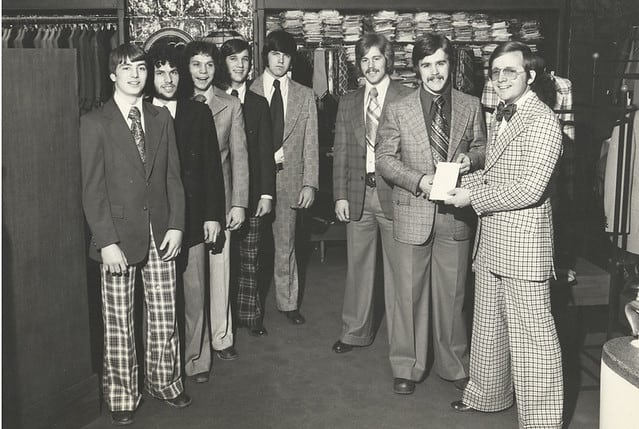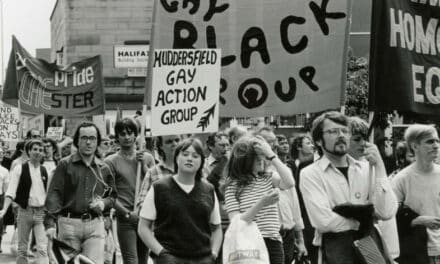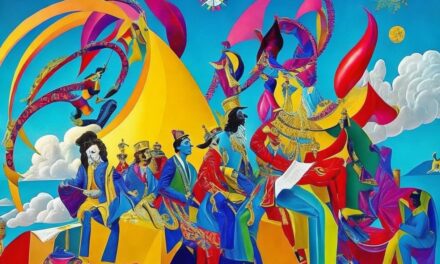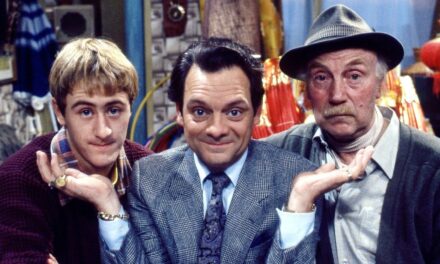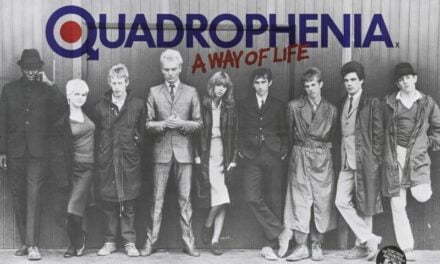The year 1970 proved a turbulent one for Britain as the optimism of the 1960s gave way to a new decade fraught with uncertainty and instability. Economically, the nation faced crises including inflation, labour disputes, and a weakened pound. The final withdrawal from the empire in the East of Suez fuelled post-imperial malaise. Meanwhile, the social liberalisation movements of the previous decade continued to divide the generation gap as youth culture rapidly evolved.
In music, 1970 saw the breakup of the Beatles, whose swan-song album Let It Be topped the charts in the UK and US. Their dominance gave way to new sounds like the psychedelic space rock of Pink Floyd’s Atom Heart Mother. In fashion, the trendy yet edgy style of ‘Mod’ evolved into ‘Skinhead’ culture amongst working-class youth. On television, situation comedies like Up Pompeii! provided an escape into silliness from increasing social tensions.
Politically, 1970 marked the end of Labour Prime Minister Harold Wilson’s five-year tenure. Wilson’s reformist government struggled with high inflation and strike outbreaks in 1969 that continued plaguing Edward Heath’s new Conservative administration. The year also saw the rise of the Women’s Liberation Movement, which brought radical feminist voices to the forefront.
In Northern Ireland, Catholic protests demanding civil rights and an end to discrimination escalated into violence and unrest, leading to the deployment of British troops in a deepening sectarian conflict that would come to be known as ‘The Troubles’. The radical left also mobilised with massive demonstrations against the Vietnam War and the first Earth Day awakening environmental consciousness.
Despite the turmoil, Britain still marked major achievements in 1970. Iconic fashion label Laura Ashley went public. The striking Royal Albert Bridge designed by Sir Giles Gilbert Scott opened after 35 years of planning and construction. And Concorde, the futuristic supersonic aircraft jointly developed between Britain and France, conducted its first test flights.
The year proved momentous for sports. In football, England’s victory over West Germany clinched the World Cup in a cathartic triumph. At Wimbledon, the epic five-set final between Britain’s John Newcombe and American Ken Rosewall was considered one of the greatest matches in tennis history.
By year’s end, Britain found itself uneasily straddling the old and the new – still holding vestiges of its imperial past but transitioning into a modern society, facing economic and social crises at home while culturally being pulled in myriad directions. 1970 marked a liminal period for the nation, one filled with both nostalgia for the 1960s and uncertainty for the path ahead in the 1970s.

Music
Simon & Garfunkel Split
In 1970, the acclaimed American folk rock duo Simon & Garfunkel shocked fans by announcing their split following the release of their hugely successful fifth studio album, Bridge Over Troubled Water. Despite being at the peak of their popularity, long-simmering tensions between Paul Simon and Art Garfunkel led to the duo permanently parting ways.
Simon & Garfunkel first rose to fame in the mid-1960s folk revival scene in New York with poetic songs like ‘The Sound of Silence’ and ‘Mrs. Robinson’. Their meticulously crafted harmonies and evocative lyrics appealed to both rock and folk audiences.
By their fifth album, they were bonafide superstars, with 1968’s Bookends topping the charts and spawning hit singles like ‘Mrs. Robinson’. Expectations were sky-high for a follow-up.
Bridge Over Troubled Water took over a year to record, with Simon handling songwriting while Garfunkel pursued acting. The album lived up to expectations both commercially and critically – it spent 10 weeks at #1 in the US, won 6 Grammys including Album of the Year, and spawned two hit singles in the gospel-influenced title track and ‘The Boxer’.
However, behind the scenes, growing artistic tensions between Simon and Garfunkel reached a breaking point. Simon was eager to pursue solo rock ambitions, while Garfunkel showed little interest in songwriting or rock. Garfunkel’s acting schedule caused delays, exacerbating the friction.
With the duo barely speaking to one another, Simon wrote and arranged nearly all of Bridge Over Troubled Water by himself in what amounted to a solo effort. Immediately after finishing the record in 1970, Simon & Garfunkel announced their split.
Their breakup shocked the music world given they were arguably at their peak. But the duo admitted they had simply grown too far apart artistically and personally. They would reunite sporadically over the years for reunion tours and shows, but never released another studio album together.
Bridge Over Troubled Water thus bookended Simon & Garfunkel’s meteoric partnership. Their harmonious folk rock soundtracked the 1960s, before diverging paths tore one of music’s most celebrated duos apart just as they reached their pinnacle.

Mungo Jerry’s “In the Summertime” Tops Charts
The summer of 1970 in Britain was defined by the infectious retro hit “In the Summertime” by British rock band Mungo Jerry. With its distinctive jug band sound and bluesy shuffle rhythm, the feel-good track resonated with listeners, spending an impressive seven weeks at number one on the UK singles chart.
Mungo Jerry formed in 1970 and was comprised of singer-guitarist Ray Dorset, Colin Earl on piano, and Mike Cole on double bass. Their musical style had a nostalgic 1950s skiffle and blues influence featuring acoustic guitars, honky tonk piano, and jug player Paul King blowing across the top of a glass bottle to create a bubbling sound.
This old-time yet energetic vibe proved perfectly suited for summer release. “In the Summertime” glorified the carefree sunny months with lyrics about taking time off work to drink lemonade and travel down to the coast in a battered old car. The laidback lyrics and toe-tapping rhythm captured a mood of joyful freedom.
Released in May 1970 as Mungo Jerry’s debut single, “In the Summertime” quickly shot up the charts, dethroning previous #1 “Chelsea Dagger” by The Rolling Stones in early June. It would enjoy a seven-week reign during the actual British summer.
Beyond the UK, “In the Summertime” also reached the top spot in charts across Europe and Australia. In the US, it peaked at #3 on Billboard’s pop chart. Globally, it eventually sold over 30 million copies becoming one of the biggest hits of the 1970s.
The massive success of “In the Summertime” typified a yearning for nostalgia amongst youth countercultures and the rising hippie movement. Its retro sound harkened back to more innocent times in the 1950s before the turmoil of the 1960s.
Propelled by this smash breakout hit, Mungo Jerry’s debut eponymous album also shot to #1 in the UK. They were unable to match this early success in later years, with “In the Summertime” remaining their chart-topping career hit. However, in the summer of 1970, Mungo Jerry’s feel-good retro folk rock tune created a blissful escapist vibe for Britain in troubled times.
Beatles’ Swan Song Let It Be Tops Charts Amid Breakup
The year 1970 marked the finale of the most influential band in rock history – The Beatles. After months of internal tensions, the Fab Four formally announced their breakup in April 1970, shortly after releasing their final studio album Let It Be. Despite being recorded amidst turmoil, Let It Be topped albums charts on both sides of the Atlantic, serving as the swan song for the bestselling band of the 1960s.
By early 1969, growing divisions among the Beatles were coming to a head. Musical disagreements during the tense Let It Be recording sessions, filmed for a documentary, drove the foursome further apart. John Lennon had privately told the others he was leaving the band in September.
But the Beatles carried on to complete Let It Be and plan a supporting tour. That never materialized however. By April 1970, McCartney unofficially announced the breakup by releasing his self-titled solo album. The following month, Let It Be emerged as the Beatles’ farewell record.
Let It Be showed a band fragmenting, with sessions pieced together by producer Phil Spector. Yet it contained classics like the title track, “Get Back”, and “Across the Universe” that highlighted the Beatles’ enduring brilliance. Upon release in May 1970, the album soared to #1 in the UK and US, proving the world’s appetite for Beatles music remained strong despite the split.
The album won the 1970 Academy Award for Best Original Song Score for “Let It Be”. But the band members themselves considered it a less satisfying coda compared to predecessors like Rubber Soul and Revolver recorded during their 1960s heyday as a cohesive unit.
Nonetheless, Let It Be served as a poignant epitaph for the most significant musical force of the era. By year’s end, each member was pursuing solo careers and legal battles were underway. But the bittersweet swan song of Let It Be ensured the Beatles’ legacy would endure long after their breakup, capping the end of a glorious era in pop music history.

Entertainment
ITN Debuts on Television
In June 1970, Independent Television News (ITN) was launched in Britain as an alternative news provider to the BBC, breaking the public broadcaster’s monopoly on television journalism. ITN emerged as a commercial rival that would compete with the vaunted BBC for viewers seeking quality independent reporting.
Since the 1950s, the BBC had held exclusive rights to produce news programming for Britain’s ITV network as well as its own channels. But in the late 1960s, ITV broadcasters pushed for change, arguing the need for a competitive commercial news service.
Parliament passed the Television Act in 1964, opening the door for ITV to create its own news provider. However, it took years to work through logistical challenges including concerns over impartiality. Finally in 1970, ITN was cleared to launch news productions for ITV stations.
Led by newscaster Mark Woodruff, ITN produced its first 30 minute News at 5:45 bulletin on June 15, 1970. ITN refused to hire away BBC journalists to avoid claims of bias, instead building its own reporting team. With strong resources and talent, ITN delivered in-depth quality coverage.
ITN’s newscasts quickly found an audience, establishing the company as a viable challenger to the BBC’s supremacy. Viewers benefitted from having an alternative voice in television news rather than a single state-owned source.
Over its first decade, ITN covered major events like general elections, the Troubles in Northern Ireland, the Apollo moon landings and the Watergate scandal through an independent lens. ITN also developed popular shows like the News at Ten hosted by Sir Alastair Burnet.
By successfully competing with the esteemed BBC, ITN demonstrated that commercial news could co-exist as a counterbalance in the public interest. The launch of ITN in 1970 diversified British television journalism and gave viewers more choice at a pivotal time of political upheaval and social change.
Up Pompeii! premieres on BBC
In January 1970, the BBC debuted a new comedy series called Up Pompeii! that satirised life in ancient Rome through a comedically British lens. Starring Frankie Howerd as the main character Lurcio, Up Pompeii! became a hit by using outrageous puns, anachronisms and fourth wall breaks to create humour.
The show was set in the Roman city of Pompeii in the era leading up to the eruption of Mount Vesuvius in 79 AD. Frankie Howerd starred as Lurcio, a cunning slave trying to navigate life in his master’s villa while mocking Roman society’s hedonism and corruption.
References to modern British life were juxtaposed against the Roman setting for comedic effect. The show frequently broke the fourth wall, with Lurcio speaking directly to the TV audience to share his exasperation at the other characters’ absurdities. Outrageous wordplay and puns also feature prominently.
Up Pompeii! premiered in January 1970, quickly finding an audience for its risqué humour. The show ran for two seasons until June 1970, ending its 12-episode run before losing steam. Two specials would air in 1971 and 1975 before the concept was retired.
Up Pompeii! marked a transition into a new decade for subversive British comedy. Its frequent sexual innuendos and poking fun at authority figures in a seemingly innocent historical setting allowed it to bypass more restrictive standards.
The show became a launching pad for writer Talbot Rothwell and actor Frankie Howerd, both mainstays of the Carry On comedic film franchise. Today, Up Pompeii! is still fondly remembered as an influential pioneer of using comedy to lampoon cultural sacred cows. The show’s short but celebrated run made it one of the early hits of 1970s British television comedy.

The Railway Children released in cinemas
In 1970, the quintessentially British family film The Railway Children was released in theatres, bringing the beloved 1906 novel by E. Nesbit to life on the big screen. The nostalgic adaptation featuring Jenny Agutter charmed audiences with its portrayals of courage and kindness in early 20th-century England.
The G-rated film from director Lionel Jeffries tells the story of three privileged children – Bobby, Phyllis and Peter – whose lives are upended when their father is falsely imprisoned. They move with their mother to a small Yorkshire cottage near a railway station.
There the children have a series of adventures befriending local residents, helping save a train from a major crash, and ultimately aiding the exoneration of their father. The movie tugs at heartstrings while portraying Edwardian England through an idealised lens.
With stunning Yorkshire landscapes and vintage locomotives, The Railway Children’s setting proved integral to its magic. Young actress Jenny Agutter endeared herself to audiences as the eldest sibling Roberta. The film’s climactic scene where Roberta waves down a passing train remains one of British cinema’s most tear-jerking moments.
Released in March 1970, The Railway Children was a major critical and commercial success at a time of growing family entertainment. It earned multiple BAFTA nominations including Best Actress for Agutter. The film played continuously in theatres for years and later inspired a musical stage adaptation and a 2000 TV remake.
Five decades later, the 1970 original remains a staple of British cinema. Its portrayal of youth courage and resilience still resonates. For many, The Railway Children cinematically encapsulates the spirit of early 20th century Britain, seen through a nostalgic lens. The film continues delighting new generations as a quintessential British family classic.
Culture
Glastonbury Festival Debuts
In September 1970, the first Glastonbury Festival was held at Worthy Farm in southwest England, starting an iconic annual music event that would grow into the largest greenfield festival globally. The low-key inaugural edition attracted just 1,500 attendees who were treated to free milk from the dairy farm.
Glastonbury was created by dairy farmer Michael Eavis, inspired after attending a blues festival at the Bath Festival of Blues and Progressive Music earlier that summer. Eavis decided to host a one-day event on his own land, charging £1 for entry which included free milk from his cows.
The inaugural festival featured a modest lineup of folk acts on a single stage, headlined by Marc Bolan’s rock band T.Rex. Attendance was tiny compared to future editions, with just 1,500 revellers setting the mood of a communal hippie gathering. Food, equipment and staffing were all minimal.
However, the first Glastonbury achieved Eavis’ goal of promoting a laidback, collaborative atmosphere for the young people’s performing arts. Its farm setting would become iconic and serve as a blueprint for future open-air festivals. Mementos like reproduction posters still celebrate its DIY roots.
After the inaugural event’s success, Glastonbury became an annual tradition throughout the 1970s but remained small in scale. It took until the 1980s before Glastonbury evolved into Britain’s premier outdoor music festival, drawing tens of thousands of attendees and the biggest acts in rock and pop.
Looking back, the 1970 debut edition seems quaint compared to the mammoth event Glastonbury has become. But by daring to dream big while starting small, Michael Eavis launched a counter-culture phenomenon. The first Glastonbury Festival marked the humble beginnings of what would become the definitive British musical experience.

Kenneth Tynan’s Oh! Calcutta! opens
In 1970, British theatre producer Kenneth Tynan brought his controversial and sexually provocative stage musical Oh! Calcutta! to London’s West End. Directed by Jacques Levy, the revue featured skits by writers like Samuel Beckett and John Lennon performed in the nude as an audacious statement of the 1960s sexual revolution.
Tynan conceived Oh! Calcutta! as a response to perceived censorship and prudishness in mainstream entertainment and politics. Its unabashed use of full-frontal nudity and exploration of taboo sexual topics sparked outrage amongst moral conservatives. Many considered the production indecent and pornographic.
However, Oh! Calcutta! drew significant crowds amongst more liberally minded theatregoers when it opened at the Royalty Theatre in June 1970. Some praised it as a bold, uninhibited celebration of human sexuality. Others decried it as vulgar attention-seeking. Nonetheless, its controversial premiers ignited heated public debate about freedom of expression and artistic boundaries.
Oh! Calcutta! became one of the most discussed stage shows of its era, given its complete rejection of previous limits on nudity and sexual content in the arts. It ran for over 3,900 performances in London before expanding to America and toured extensively worldwide during the 1970s sexual revolution. The production remains one of modern theatre’s most polarising and boundary-defying works.

Politics
Conservative Government Elected
In June 1970, the Conservative Party won the British general election, returning to power after 6 years in opposition under new Prime Minister Edward Heath. The Tories successfully unseated Harold Wilson’s incumbent Labour government, regaining control of Parliament during a turbulent time for Britain. The election saw a nationwide swing towards the Conservatives, who campaigned on a platform of reform and stability.
The Conservatives campaigned on the slogan “A Better Tomorrow”, criticising Labour’s handling of industrial strife and economic woes like inflation and unemployment. Led by Edward Heath, the Tories positioned themselves as the party of prosperity, security and progress. They focused on moderate policies while tapping into dissatisfaction with Wilson’s final turbulent term in office.
During the brief 3 week campaign, polls showed a narrow gap between Labour and Conservatives as Heath proved an effective leader. On election day, the Conservatives ultimately gained 28 seats for a majority of 31 in the House of Commons. This marked a sharp reversal from Labour’s 100+ seat edge in 1966 and reflected the nation’s shifting mood.
Labour suffered losses across the Midlands, Southeast and rural England as middle class voters swung to the Tories. However, Heath failed to make gains in Labour’s strongholds like Scotland, Wales and the major industrial cities of Northern England. But the Conservatives successfully won over ‘swing voters’ worried by strikes and high taxes under Labour.
At age 48, Heath became Britain’s youngest prime minister in over sixty years when he took office on June 19, 1970. His arrival ended 13 years of Labour government and brought fresh energy after the social upheaval of the 1960s. Heath inherited immense economic challenges including high inflation, sluggish growth and a weak pound.
The Prime Minister moved quickly to establish his authority and set an ambitious reform agenda. Within weeks, Heath conducted a major reshuffle, strengthened Cabinet collective decision-making and outlined plans to reform trade unions and apply to join the European Common Market.
However, Heath’s government would soon become consumed by the worsening conflict in Northern Ireland. The Tories struggled to stabilise the security situation as sectarian violence escalated in 1971-72. Bloody Sunday in 1972 became one of the Troubles’ most notorious events.
Heath pursued controversial policies like interning terror suspects without trial, which only inflamed tensions. But his efforts helped pave the way for eventual peace. Domestically, the government made progress reforming industrial relations and overhauling local taxation. But unemployment and inflation continued rising, eroding living standards and trust in the Conservatives.
The 1970 election proved a watershed for Britain. By returning the Tories to power, the electorate sought solutions to the country’s mounting problems and a path to stability amidst economic gloom and social change. However, Heath’s government would endure a turbulent tenure through the early 1970s.
Equal Pay Act Takes Effect
On December 29, 1970, the Equal Pay Act came into effect in the United Kingdom, a landmark step towards eliminating pay discrimination against women in the workplace. The legislation aimed to ensure men and women received equal compensation for equal work across professions.
The Equal Pay Act made it illegal for employers to pay workers of one gender less than the other for the same job. It empowered women to take pay disputes to industrial tribunals and courts. The burden of proof was placed on employers to justify disparities with objective factors not related to gender.
Championed by Labour MP Shirley Summerskill, the Act was passed in 1970 after years of organising by women’s rights activists. However, its implementation was delayed six months to allow businesses time to update pay structures. Many employers remained reluctant to comply despite facing fines and legal action.
In its early years, the Equal Pay Act’s impact was limited. Pay scales across industries continued discriminating against women, who often worked in lower paid roles. Societal norms about gender and work persisted. Female employees lacked information to identify unequal pay. Court cases were slow and expensive.
However, the Act established an important legal foundation and framework to build upon. Later strengthened by the EEC and court rulings, it encouraged more women to pursue higher-paid occupations previously dominated by men. The gender pay gap narrowed from around 40% in 1970 to 20% by 1990, although inequalities persisted.
The Equal Pay Act signified growing public support for women’s rights by the 1970s. Alongside landmark laws like the 1967 Abortion Act, it reflected greater female empowerment and societal modernisation. The crusade for equal pay continued gaining momentum through the 20th century. The Act stands as a pivotal first step. By prohibiting gender as grounds for pay discrimination, it extended workplace protections and helped enable women to seek their rightful compensation and status in the labour force.

Sports
England Loses in World Cup Quarterfinals
In June 1970, England’s reign as World Cup champions ended in heartbreaking fashion with a 3-2 upset loss to West Germany in the quarterfinals in León, Mexico. The defeat marked a crashing disappointment for England after their trophy triumph in 1966.
Going into the 1970 tournament, England were favoured to make another strong run. Manager Sir Alf Ramsey retained core players from the 1966 squad like captain Bobby Moore, forwards Geoff Hurst and Martin Peters, and goalkeeper Gordon Banks. England cruised through the group stage, winning all 3 matches to set up the quarterfinal clash with rivals West Germany.
The match on June 14th was a tense affair between the two European powers. West Germany took a 2-0 lead in the first half through goals from Beckenbauer and Seeler. England fought back with a goal from Alan Mullery to make it 2-1 at halftime. The comeback was on.
In the second half, a diving header from Martin Peters levelled the score 2-2 and England seemed to have momentum on their side. But with just minutes left, Gerd Müller pounced on a rebound and put West Germany back in front 3-2. England could not find an equaliser before the final whistle.
The loss ended England’s reign as world champions in bitter disappointment. Ramsey and his players were heavily criticised back home for the shocking defeat after entering the tournament with high expectations. England had to watch West Germany advance all the way to the finals before losing to Brazil.
The quarterfinal exit marked the end of England’s golden generation that had claimed the Jules Rimet Trophy in 1966. Ramsey remained manager for a few more years but the team failed to qualify for the next World Cup in 1974. It would be 12 long years before England even reached another major tournament final.
The loss to West Germany in 1970 represented a missed opportunity and the conclusion of English soccer’s 1960s glory days. Its disappointing World Cup defence foreshadowed challenges ahead as the national team struggled to maintain elite status through the 1970s.
Chelsea Win the FA Cup
In April 1970, Chelsea Football Club captured England’s coveted FA Cup trophy for the first time after a dramatic 2-1 victory over Leeds United in a replay at Wembley Stadium. After drawing 2-2 in the initial match, Chelsea rallied to beat their formidable opponents in extra time in the final.
The Blues entered the final seeking their first-ever major trophy after a decade stuck in the Second Division. Managed by Scot Dave Sexton, Chelsea had overcome top flight clubs like Manchester City and QPR en route to Wembley. Leeds were the dominant English team of the era, league champions in 1969 and runners up in 1970 under Don Revie.
The first final on April 11th was an epic back-and-forth battle. Leeds’ Jack Charlton opened the scoring, but Chelsea’s Ian Hutchinson equalised before half time. With just two minutes left, Leeds regained the lead through Mick Jones. However, Chelsea’s Peter Osgood netted a last-gasp diving header to make it 2-2 at the final whistle.
With no winner after extra time, an unprecedented replay was required at Old Trafford on April 29th. In extra time, Chelsea substitute David Webb headed in the winner from a set piece in the 104th minute. Moments later, goalkeeper Peter Bonetti saved a shot off the line to secure the 2-1 victory.
Chelsea had ended their trophy drought in the most dramatic of fashions. Their underdog triumph over soccer juggernaut Leeds United made national headlines as one of the FA Cup’s greatest upsets. It marked the arrival of Chelsea on English football’s biggest stages after years in the wilderness.
Captain Ron “Chopper” Harris led emotional scenes as Chelsea lifted the treasured trophy. The 1970 FA Cup final went down as an all-time classic match with its twists, late equalisers, and replay. For Chelsea Football Club, those two games at Wembley Stadium changed the course of the club forever.

Tony Jacklin Wins US Open
In June 1970, English pro golfer Tony Jacklin made history by winning the U.S. Open championship at Hazeltine National Golf Club in Minnesota. Jacklin’s landmark victory was the first by a British player at the event in almost 50 years.
Heading into the 1970 U.S. Open, no Englishman had won the prestigious major tournament since Ted Ray in 1920. American golfers had dominated the event for decades. The 28-year-old Jacklin arrived seeking to end the drought for British golf.
After solid opening rounds of 70 and 71, Jacklin shot a course record-tying 67 in the third round to grab a two-stroke lead. In Sunday’s final round, he battled fading light and some nerves to card a 72 and edge American Dave Hill by two shots. Jacklin finished with a total score of 281, 7-under par.
Jacklin’s clinching putt on the 18th was a triumphant moment for British golf. Thousands back home stayed up late to watch their countryman make history at Hazeltine. His victory was front page news across the U.K.
The win gained Jacklin praise for his aggressive and fearless play. By conquering the narrow fairways and deep bunkers of a traditional U.S. Open layout, he demonstrated the skill of British golfers on the world stage. Jacklin called the victory “one of the biggest things that’s happened to England in a while.”
Tony Jacklin’s U.S. Open victory marked a turning point. His success paved the way for an era of renewed British dominance in golf. Future Major champions like Sandy Lyle, Nick Faldo, and Lee Westwood followed in his footsteps.
After decades of American supremacy, Jacklin proved Brits could still achieve Major success. At the 1970 Ryder Cup, Jacklin led the British team to a famous tie with the U.S. His accomplishments sparked a British golf renaissance. In his career, Tony Jacklin won over 20 tournaments worldwide.
By conquering the challenging U.S. Open, Jacklin forever etched his name in golf’s history books. His triumph 50 years ago ended his nation’s long drought with a display of world-class skill and fearlessness under pressure.
The year 1970 marked a pivotal transitional period in Britain as the postwar era gave way to new uncertainties. Politically, Edward Heath’s Conservatives regained power after ousting Harold Wilson’s Labour government amid worsening industrial strife and economic woes. But the Troubles in Northern Ireland also escalated violently, threatening the UK’s cohesion. Culturally, boundary-pushing stage productions like Oh! Calcutta! sparked debates about artistic freedom, while the inaugural Glastonbury Festival pioneered the outdoor music festival concept.
Economically, Britain struggled with high inflation, rising unemployment and outdated industrial practices, as seen in the failure of the merged auto giant British Leyland. Overseas, England’s reign as World Cup champions ended disappointingly in a quarterfinal exit. However, golfer Tony Jacklin emerged as a bright spot with his groundbreaking US Open victory. On women’s rights, the Equal Pay Act coming into effect marked a milestone, despite its initial limited impact.
Overall, 1970 marked the end of postwar optimism as political, economic and social crises overwhelmed the country. However, positive strides surrounding equality and new cultural ventures provided optimism. By year’s end, Britain found itself at a crossroads, forced to confront its lingering divisions and challenges before it could emerge renewed. 1970 set the stage for the difficult but transformational decade to come.

